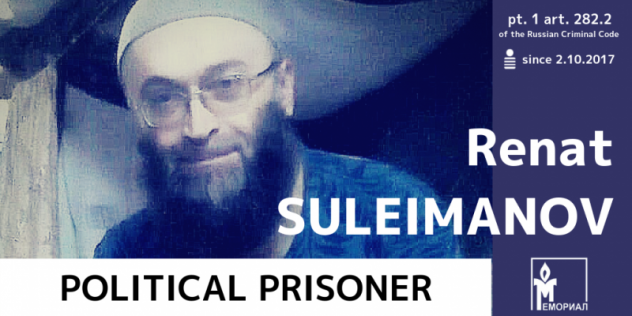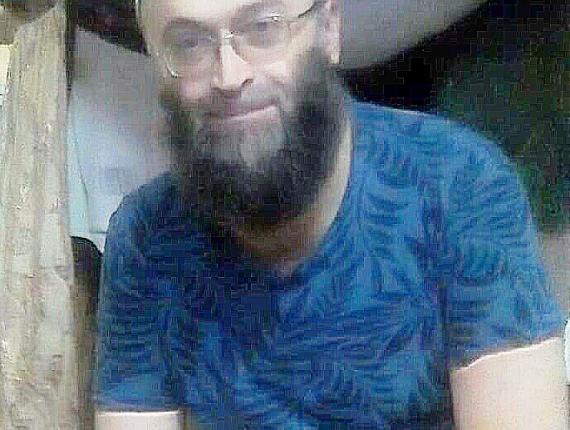Renat Suleimanov, convicted of involvement in Tablighi Jamaat in Crimea, is a political prisoner, Memorial says
Crimean Tatar Renat Suleimanov has been sentenced to four years in a prison colony for his religious beliefs.
Four Crimean Tatars — Renat Suleimanov, Talyat Abdurakhmanov, Arsen Kubedinov and Seiran Mustafaev — were convicted in January 2019 under Article 282.2 of the Russian Criminal Code of involvement in the international Islamic movement Tablighi Jamaat (‘Society for Spreading the Faith’), that has been designated as extremist by the Supreme Court of the Russian Federation. Suleimanov was found to be the organiser of a cell and sentenced to four years’ deprivation of liberty, while the others were each given suspended sentences of 30 months for involvement in the organisation.
We consider the ban on Tablighi Jamaat to be unlawful: neither in the decision of the Supreme Court, nor in those criminal cases investigated in Russia known to us, is there any evidence the movement has anything to do with extremist or any other kind of violence. In democratic countries the movement is not banned.
Prosecution for involvement in Tablighi Jamaat in Crimea appears to be particularly unjust. After all, in Ukraine, of which Crimea is a part under international law, the organisation is legal.
Moreover, prosecution for involvement in banned Muslim organisations (Hizb ut-Tahrir, Tablighi Jamaat etc.) seems to have become a convenient instrument for the suppression of civic activity by Crimean Tatars, most of whom have not recognised the annexation of Crimea by Russia.
In our view, the convictions in the given case, based solely on the defendants’ participation in the Tablighi Jamaat movement, is discriminatory and violates international law. The decision of the Supreme Court to designate the organisation as extremist and ban it in Russia has no legal foundation and violates Article 28 of the Constitution of the Russian Federation that guarantees freedom of conscience and religion.
In line with the international Guidelines on definition of the term ‘political prisoner’, we consider the given criminal case is politically motivated.
Memorial Human Rights Centre considers Renat Suleimanov a political prisoner, and Talyat Abdurakhmanov, Arsen Kubedinov and Seiran Mustafaev victims of a politically motivated prosecution.
We demand the immediate release of Renat Suleimanov!
Recognition of an individual as a political prisoner, or of a prosecution as politically motivated, does not imply that Memorial Human Rights Centre shares or approves the individual’s views, statements or actions.
More information about this case is available here.
PayPal — an e-wallet for giving help to all Russian political prisoners helppoliticalprisoners@gmail.com.
Поделиться:
- ВКонтакте
- РћРТвЂВВВВВВВВнокласснРСвЂВВВВВВВВРєРСвЂВВВВВВВВ
- Telegram




